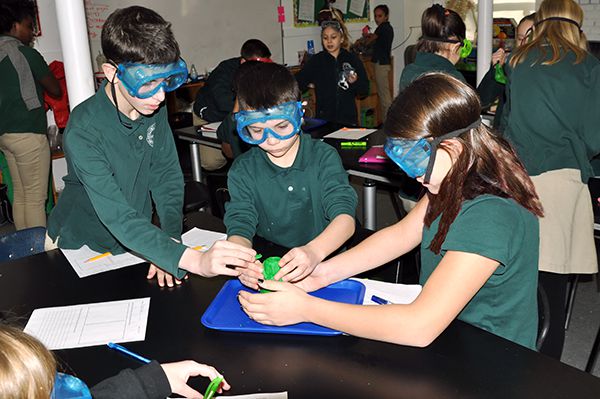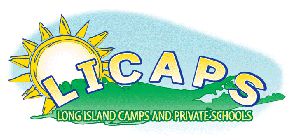Science
Ivy League students enter our Middle School science program with great enthusiasm and an inquisitive mind set for tackling big ideas. In a large part, this is due to the background knowledge and experiences gained from working with a certified science teacher specialist in our elementary grades. They are steeped in the scientific method of investigation, are familiar with tools and quite capable of handling informational text. As they continue their studies, students become familiar with the periodic table of elements and learn the differences in chemical and physical properties of substances and gain a deeper understanding of how the internal structures of an organism account for their external features.
Beginning in the 6th grade, the science program provides students with necessary background and skills for participation in New York State’s Living Science Regents Exam wherein a high score may qualify a student to take more advanced science courses in high school. In our well-equipped indoor and outdoor laboratories, students use scientific tools and instruments for observing, measuring and manipulating equipment and materials utilizing safe laboratory procedures. Students also develop proficiencies in reading technical texts and writing precisely for scientific purposes. They learn to apply their mathematical skills by organizing data into graphs and tables, and for explaining differences or similarities in their findings. Ethical guidelines that scientists must observe, questionable research reported by the media and environmental issues are pervasive topics which students never tire of discussing. As tools for instruction, both internet sites and current textbooks are excellent sources for deepening students’ understanding of extant scientific theories.
Broad curriculum topics cited below make up the instructional units which are taught over a three year period.
- Life Science: cells, diversity, human body, plants, heredity, evolution and ecosystems.
- Physical Science: force and motion, simple machines, electricity and magnetism, sound and light, classifying matter, measuring matter, and physical and chemical changes.
- Earth Science: changing surface of the earth, surface water and ground water, the earth’s atmosphere, weather and climate and space.
STEM (Science, Technology, Engineering and Math)
In a world that’s becoming increasingly complex, where what you know is as important as what you can do with it, it is more important than ever for our students to be equipped with the knowledge and skills to gather information, evaluate evidence and solve tough problems. To support the integration of science, technology, engineering and math, and with the purpose of demonstrating and experimenting with the principles of physical sciences, Ivy League constructed one of the first outdoor learning laboratories. Fabricated by artisans to our specifications, this STEM Learning Platform and the accompanying curriculum empowers students to engage in areas of inquiry which we can only imagine.




